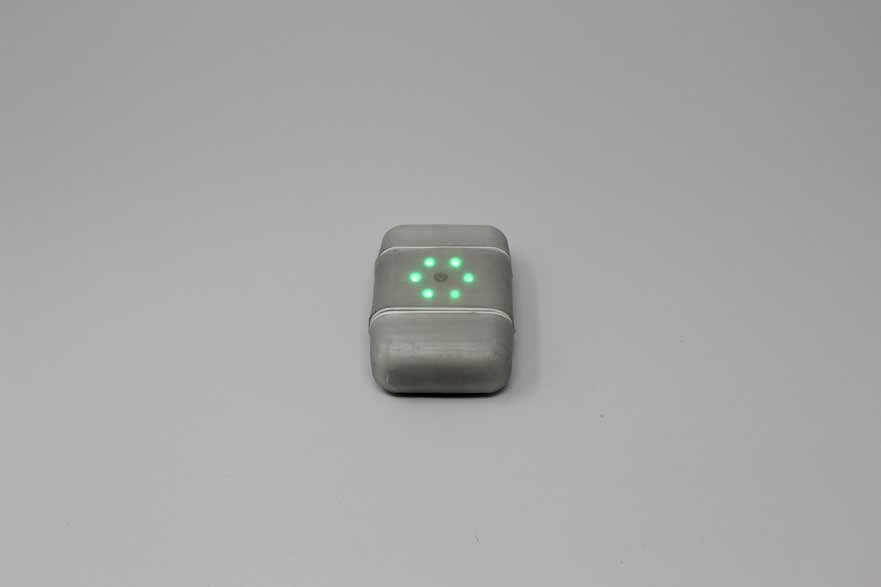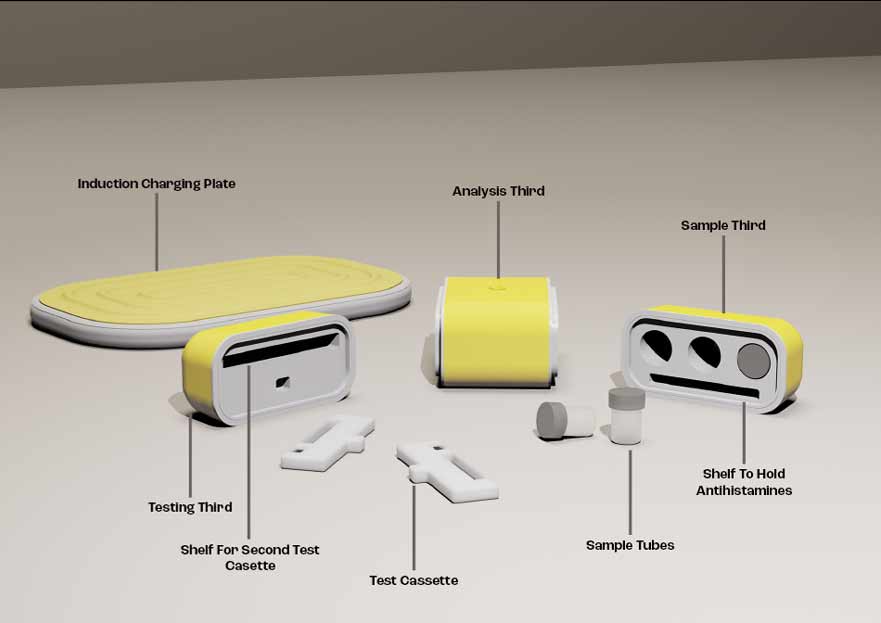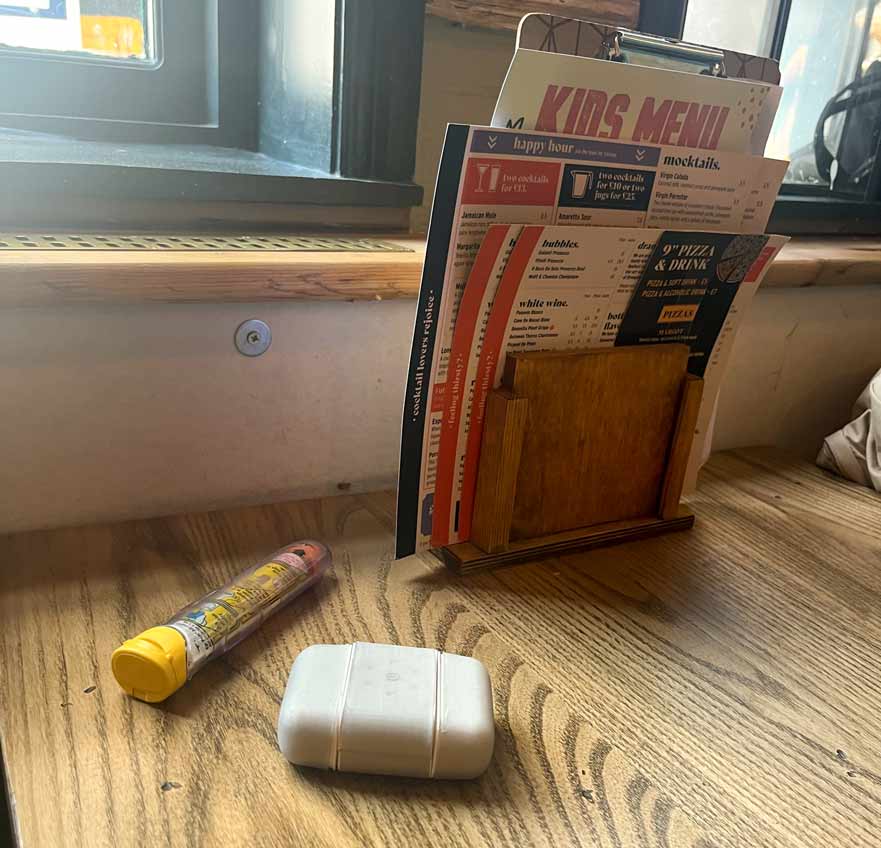Showcase 2023 Student Spotlight: Charlotte Brockett
Student Spotlight featuring BSc (Hons) Product Design student, Charlotte-Brockett and her project, alf.
By Antonio Cuyas | Published on 16 May 2023
Categories: Student Showcase; School of Architecture, Design and the Built Environment;

The project
Nottingham Trent University product design student Charlotte Brockett created the design after finding her peanut, tree nut, and crustacean allergies hard to manage.
alf, which stands for allergen lateral flow, would be used in restaurants to rapidly ensure food is safe for consumption. It would work like a Covid-19 lateral flow test- food in which samples are shaken with liquid then dropped onto a testing area.
Allergen proteins present would bind with a gold nanoparticle then travel along the test, causing a coloured line to form. A series of LEDs would read this result and the portable kit will light up green if the food is safe or flash red if it contains the allergen.

The inspiration behind the project
Charlotte, originally from North Shields near Newcastle upon Tyne, took inspiration from her own and others’ experiences. She aims to reduce the number of allergic reactions outside the home, as this is where over half occur.
She said: “My first allergic reaction was on holiday and it’s happened on numerous occasions since. It’s down to miscommunication between the staff and me, normally because of a language barrier, but it’s happened in the UK too. It causes quite a lot of anxieties for people with food allergies.”
The product – which is not yet prototyped - would link to an app, where people would document their findings on a map to help others and see further information about their test results.
The 22-year-old added: “Everything on the market is either incredibly expensive or just tests for gluten. There are also allergy support dogs but obviously these are a huge commitment. There’s nothing that looks specifically for your allergens. With alf you can pick three that you want to test for, customisable to you.”
The product can check for the 14 most popular allergens according to the UK Government. These are: celery, cereals containing gluten, crustaceans, eggs, fish, lupin, milk, molluscs, mustard, peanuts, sesame, soybeans, sulphur dioxide, and sulphites. The test would develop in a just a few minutes.
Charlotte said: “If you’re in a restaurant with friends and family, you’re not going to want to wait for 10 minutes to see if your food is safe. alf is an inexpensive, accessible way to manage your allergies. I’d like it to make a difference to people, to make it commonplace in people’s allergen management.”
The undergraduate found it challenging to understand the scientific basis of her design as this was outside her course knowledge.
She said: “I’m proud of how it came out in the end. I’ve learned a lot of skills, like how to code and use electronics. I also did some interviews with analytical chemists.”

Closing remarks
The project has given her a deep-rooted interest in medical design, and she hopes to explore this field further after graduating.
Charlotte’s creation will be exhibited at Nottingham Trent University’s art and design Student Showcase, between 27 May and 2 June.
Want to find out more?
Visit the Student Showcase website and follow our Instagram account for more student features.